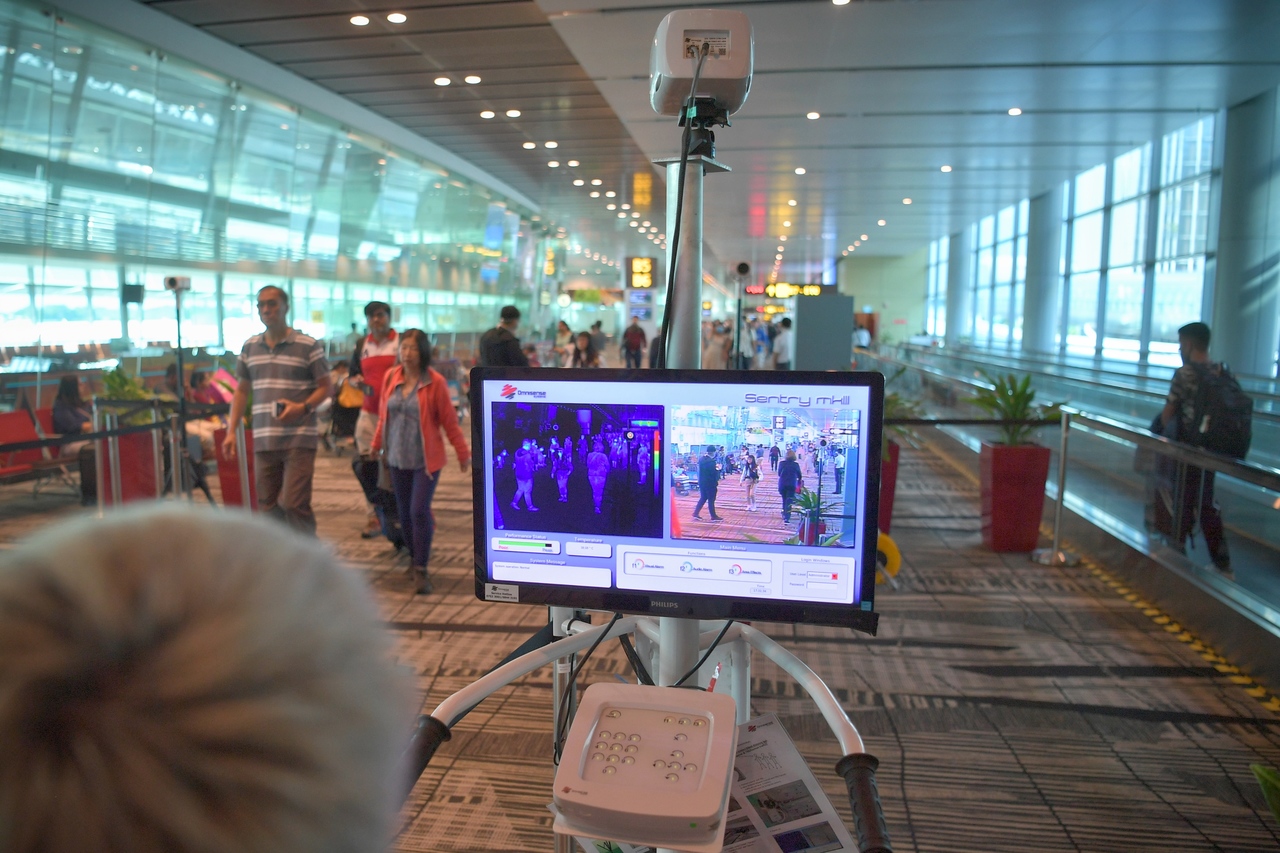A model, a teaching moment, or too lax? China media divided on Singapore's virus approach
Sign up now: Get insights on Asia's fast-moving developments

A thermal scanner at the arrival area of Changi Airport Terminal 3 on Feb 14, 2020.
ST PHOTO: ARIFFIN JAMAR
Chinese magazine Caixin has called Singapore's response to the coronavirus outbreak "a model response", while nationalistic tabloid Global Times has said the city-state's response "offers lessons".
While Chinese media have praised the Republic's handling of the coronavirus situation, there has also been derision on Chinese social media for Singapore's "Zen-like" response, a back-handed compliment, with many saying the lack of stronger measures would result in "the next Wuhan".
In a piece on Wednesday (Feb 26) examining the steps taken by China's neighbours to contain the virus, Caixin said Singapore, which could have easily turned into a "petri dish" for the virus, is probably the "biggest success story of the epidemic so far".
"Crucially, experts say, Singaporean authorities were able to successfully rally local communities behind epidemic prevention work without implementing dramatic curbs on population movement or sparking undue panic," the article said, adding that the efforts have helped check the disease's spread while minimising strain on the healthcare system.
The Global Times on Feb 19 said Singapore's rapid response, government transparency and stringent monitoring can be used as a reference by Chinese cities.
"In laymen eyes, Singapore has been too lax and defeatist in its approach in tackling the coronavirus outbreak, and Chinese netizens' opinions have been rife with such commentary that 'Singapore may become the next Wuhan' after news reported that the city state's authorities suggested healthy people do not need to wear face masks," the report said.
Singapore's seemingly "lax measures" were driven by a concern over economic loss, said Professor Zhuang Guotu of Xiamen University in the report.
The government's instructions for people to wear a mask only when unwell seemed to not sit well, with several commentaries discussing the "Zen-like" approach.
Some, like niche publication Sino Foreign Management Magazine, said the decision was due to a lack of masks and medical resources.
"From a systemic level, it is difficult to achieve the social mobilisation force of China, and it is impossible to conduct a nationwide blockade like China," said a piece by Beijing Joseph Investment chairman Chen Jiulin.
But in a commentary for Shanghai-based news website The Paper discussing Singapore's use of contact tracing and ring-fencing, Dr Yu Wenxuan of Nanyang Technological University said the approach reflects the city-state's governance style.
"It remains to be seen whether Singapore's 'Zen' epidemic control strategy will be successful," he said.
Meanwhile, speeches by Singaporean politicians made their rounds on the Chinese Internet, with many lauding the country's even-handed approach.
This began early in February with screenshots of Foreign Minister Vivian Balakrishnan speaking in Parliament, quoting Health Minister Gan Kim Yong.
"This problem is not just a Chinese problem, it is not just China's problem," read the Chinese subtitles on the Lianhe Zaobao video.
"This is a common threat confronting all of us."
"Little Po is bighearted," one user, using a common Chinese nickname for Singapore, wrote on a shared post on WeChat.
A day later, there were Zaobao videos of Prime Minister Lee Hsien Loong speaking at the Teck Ghee Constituency Chinese New Year dinner, where he explained the rationale behind banning visitors with a travel history to China.
While some accused Singapore of being selfish, most others defended the ban.
One Weibo user, referring to many confirmed cases in Singapore being Chinese tourists, said: "If we didn't have selfish countrymen going there, would they have to do this?"


